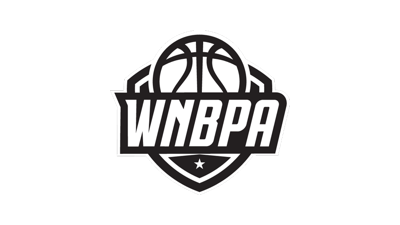WNBA and player’s union reach eight-year collective bargaining agreement

The WNBA and the Women’s National Basketball Players Association (WNBPA) reached an agreement on a new collective bargaining agreement (CBA), pending ratification by the players and the league’s Board of Governors.
The new eight-year CBA, which commences with the 2020 season and runs through 2027, provides the foundation to chart a new course for women’s professional basketball. The 2020 CBA features significant investments by the league and its teams aimed directly at increasing player salary and compensation, improvements to the overall player experience, resources specifically designed with the professional female athlete in mind, as well as a commitment to implement an integrated marketing plan league-wide.
Foremost among the deal terms is a 53 percent increase in total cash compensation, consisting of base salary, additional performance bonuses, prize pools for newly created in-season competitions, and league and team marketing deals. Under the new CBA, the league’s top players will be able to earn cash compensation in excess of $500,000, representing a more than tripling of the maximum compensation under the prior deal. Other top players will have an opportunity to earn between $200,000 and $300,000. And for the first time in WNBA history, the average cash compensation for players will exceed six figures, averaging nearly $130,000, resulting in an increase for all players from rookies to veterans.
“We approached these negotiations with a player-first agenda, and I am pleased that this agreement guarantees substantial increases in compensation and progressive benefits for the women of the WNBA,” WNBA Commissioner Cathy Engelbert said. “I want to thank the players, led by WNBPA President Nneka Ogwumike and the WNBPA Executive Committee, as well as WNBPA Executive Director Terri Jackson, for their hard work, innovative thinking and professionalism throughout the process. I also want to thank the league’s Labor Relations Committee and Board of Governors for their investment, commitment and leadership as we look forward to working together to make the WNBA a sustainable and thriving business for generations of women’s basketball players to come.”
“Cathy Engelbert, the first WNBA Commissioner, brought her perspective as a former women’s basketball student-athlete, her experience as a business professional and her passion for the game to these negotiations,” WNBPA President Nneka Ogwumike said. “We found common ground in areas that confirmed the league’s and the players’ intentions to not only make meaningful improvements in working conditions and overall professional experience, but also to improve the business with strategic planning and intentional marketing that will keep the WNBA front and center year-round.”
“With cautious optimism and trusting the league’s renewed commitment and investment, the players demonstrated a willingness to ‘lean in’ themselves and show an even greater commitment and investment in the W,” WNBPA Executive Director Terri Jackson said. “There are significant gains all across the board in this new agreement, and everything is in place for our players and the league to thrive.”
Key Elements of the New Collective Bargaining Agreement
Additional cash compensation elements
- Minimum of $1.6 million in off-season league and team marketing agreements, that both recognize top performance and highlight the diversity of the league, and would create up to $300,000 in additional annual cash compensation for select players.
- Minimum of $750,000 in prize money for special competitions beginning with the 2021 season.
- New 50-50 revenue sharing beginning with the 2021 season, based on the league achieving revenue growth targets from broadcast agreements, marketing partnerships and licensing deals.
- Increases in cash bonuses for performance awards (such as for WNBA MVP and Rookie of the Year), and newly created cash bonuses (such as for each player named to the WNBA All-Defensive First Team).
Quality of travel elements
- Premium Economy class status (such as Comfort/Economy Plus) for all players for regular-season air travel.
- Individual hotel room accommodations for every player.
- A collaborative effort to address travel concerns through the Player Advisory Panel.
Motherhood and family planning elements
- Players to receive full salary while on maternity leave.
- A new annual childcare stipend of $5,000.
- Two-bedroom apartments for players with children.
- Workplace accommodations that provide a comfortable, safe and private place for nursing mothers.
- New, progressive family planning benefits of up to a $60,000 reimbursement for veteran players for costs directly related to adoption, surrogacy, oocyte cryopreservation or fertility/infertility treatment.
Free agency elements
- Unrestricted free agency available to players one year earlier than under the prior agreement beginning with the free agency period leading up to the 2021 season. Specifically, players who complete the playing services called for in their contract and have five or more years of service will become unrestricted free agents (if they are not designated as a “core” player).
- Reduction in the number of times a player can receive the “core” designation – from four to three beginning with the 2020 season, dropping to two beginning with the 2022 season.
Career development and other quality of life elements:
The WNBA will work with its affiliated leagues, teams and sponsors to provide off-season job opportunities designed to prepare players for their post-playing careers and will advance diversity in coaching initiatives for veteran players interested in coaching careers.
- Enhanced mental health benefits and resources.
- An augmented and holistic domestic/intimate partner violence program that includes education and counseling.
- A joint Nutrition Council committed to identifying resources and address proper nutrition to optimize athletic performance.
- Access to experts in women’s health and representation on league policy committees.
The WNBA also announced today the formation of a first-of-its-kind collective, WNBA Changemakers. The initiative brings together businesses that “lead the way in the advancement of women through sports. This new platform is designed to directly support the WNBA in its transformation across marketing, branding, and player and fan experience.”

